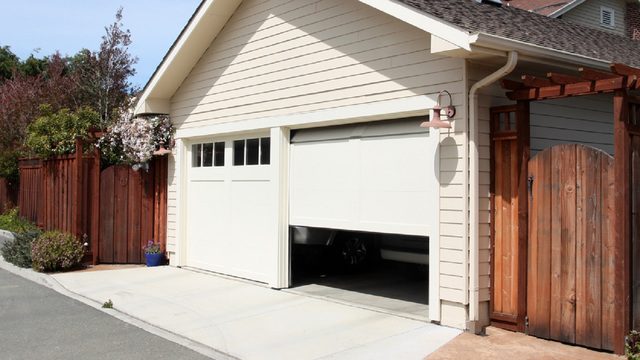
Commercial Garage Door Repair: A Friendly Guide
Think of the garage door at your workplace as the silent workhorse—rolling up as shipments arrive, closing down to protect inventory, and standing guard after hours. But when it acts up or refuses to budge, everyone notices! If you’re new to managing a business space or just curious about how to keep that big door rolling smoothly, this guide will give you the lowdown—minus the confusing technical talk.
“A well-kept garage door is a business’s quiet welcome mat and its sturdy shield all at once.”
Why Commercial Garage Doors Repair Need Extra TLC
Unlike the garage door at home, which might be used a couple of times a day, commercial ones are often at work from sunrise to sunset (and sometimes longer). Delivery trucks, forklifts, and employees rely on them constantly. The extra wear and tear means things break down a bit faster—springs get tired, rollers wear out, and sensors can act up. When a problem pops up, it’s not just an inconvenience; it could mean lost time, delayed shipments, or even a safety hazard.
Here’s a quick side-by-side view to show why commercial doors need special attention:
| Commercial Garage Door | Residential Garage Door |
|---|---|
| Used dozens (or hundreds) of times daily | Used a few times per day |
| Built heavier and larger | Usually lighter and smaller |
| Exposed to forklifts, trucks, and heavy loads | Faces car traffic only |
| Impacts business productivity and security | Mainly affects household convenience |
Telltale Signs Your Door Needs Help
Commercial garage doors rarely just stop working out of nowhere. They usually drop hints that something’s not quite right. Maybe the door is moving slower than usual, makes a grinding racket, or suddenly refuses to shut all the way. These are all SOS signals worth paying attention to!
Strange noises: Creaks, squeaks, or bangs aren’t just annoying—they’re cries for help.
Jerky movements: If the door stutters or shakes, something inside might be stuck or worn out.
Won’t open or close: If your door is on strike, it could be the opener, the tracks, or something blocking its path.
Lights or sensors acting up: The safety sensors near the floor keep people (and stuff) safe. If their lights start flashing or the door reverses for no reason, it’s time for a checkup.
It’s much easier (and cheaper!) to fix small issues now than to wait for a total breakdown.
DIY or Call the Pros? Knowing Your Limits
When the garage door doesn’t cooperate, your first instinct may be to grab a ladder and toolbox. While some quick fixes are perfectly safe—like clearing debris from the tracks or checking if the opener lost power—other repairs can be downright risky.
Commercial doors have heavy springs under a lot of tension, and messing with them can be dangerous. If you ever hear a loud snap or see a cable hanging loose, it’s best to call someone who knows their stuff. Most businesses have a go-to repair company on speed dial for a reason.
Here are a few things you can safely check yourself:
Look for obvious obstructions in the tracks
Test the wall switch and remote batteries
Clean the photo-eye sensors (gently wipe them with a soft cloth)
Listen for weird sounds during operation
Anything beyond that—especially broken springs, bent tracks, or electrical issues—should be left to professionals.
Keeping Your Door Happy: Preventive Care
The best way to avoid major headaches is to give your garage door a little love on a regular basis. Think of it like getting an oil change for your car—you don’t wait for the engine to die before you check under the hood.
Here’s a simple routine to keep things running smoothly:
Monthly visual check: Walk along the door and look for anything odd—rust, dents, loose bolts, or frayed cables.
Listen during operation: Any new sounds? Grinding, clanking, or squealing are worth noting.
Lubricate moving parts: A little grease on rollers and hinges goes a long way (just avoid the tracks themselves).
Test the safety features: Place a small object in the door’s path to make sure it reverses as it should.
Schedule professional inspections: Even if everything seems fine, having a pro look things over once or twice a year can catch hidden issues before they get worse.
Wrapping Up: Why Garage Door Repair Matters
When you run a business, every little detail counts—and that includes the garage door. Taking care of it isn’t just about avoiding inconvenience; it’s about keeping your team safe, your deliveries on time, and your property secure. With a bit of attention and a willingness to call in help when needed, you can keep things rolling without a hitch.
So next time you walk past that big door, give it a quick glance and a listen. It works hard for you—make sure it gets the care it deserves!
Read More: Commercial Garage Door Repair



